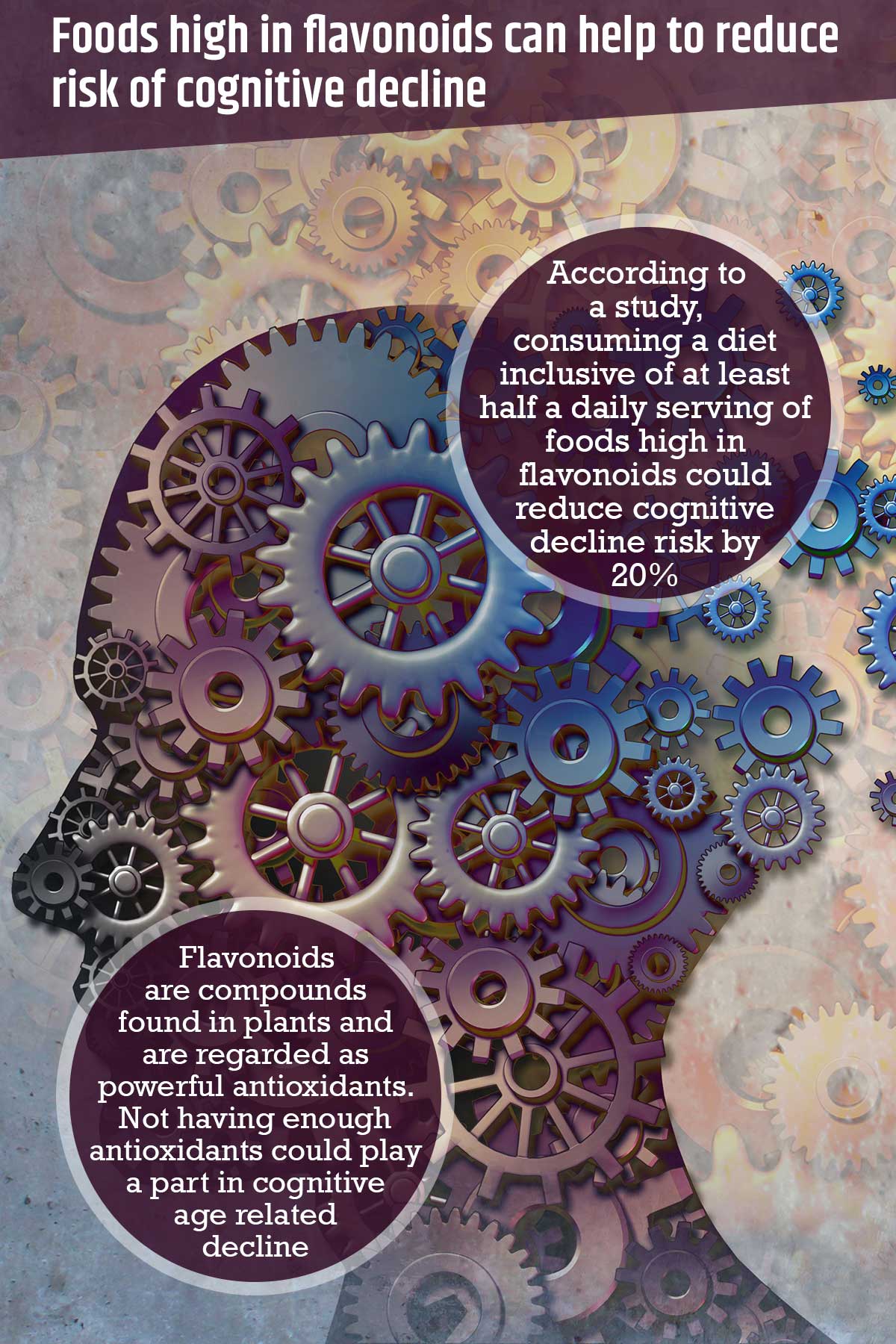According to a study, consuming a diet inclusive of at least half a daily serving of foods high in flavonoids such as oranges, strawberries, apples, and peppers could reduce cognitive decline risk by 20%.1✅ JOURNAL REFERENCE
DOI: 10.1212/WNL.0000000000012454
The researchers examined various kinds of flavonoids and discovered that anthocyanins and flavones could offer the most protection.
Flavonoids are compounds found in plants and are regarded as powerful antioxidants. It’s believed that not having enough antioxidants could play a part in cognitive age related decline.
The study involved 49,493 women who were aged 48 on average and 27,842 men who were aged 51 on average at the beginning of the study.
All individuals completed a number of questionnaires about how frequently they consumed different foods for the 20 years of follow-up.
Their consumption of different kinds of flavonoids was determined by multiplying the flavonoid content of each food by its frequency.
The participants self-evaluated their cognitive abilities twice throughout the study, making use of questions such as, “Do you have more trouble than normal remembering a short list of items?” and “Do you have more trouble than normal remembering recent events?”
This assessment reflects early memory problems when memory has worsened enough for an individual to become aware of, but not necessarily enough for a screening test to detect it.
The individuals in the group that on average represented the highest 20% consumers of flavonoids had approximately 600 mg in their daily diets, in comparison to the individuals in the lowest 20% consumers of flavonoids, who had approximately 150 mg in their daily diets.
As an example of flavanoid content, strawberries have approximately 180 mg of flavonoids per 100 grams, while apples have approximately 113 mg.
After factors such as total caloric intake and age were adjusted for, individuals who consumed more flavonoids in their diets reported reduced cognitive decline.
The group with the highest flavonoid consumption had a 20% lower risk of self-reported cognitive decline compared to the individuals in the lowest group.
Individual flavonoids were also examined. Flavones, found in certain spices and orange or yellow vegetables and fruit, had the strongest protective qualities and were linked to a 38% reduced cognitive decline risk, which is comparable to being 3 to 4 years younger.
Peppers have approximately 5 mg of flavones per 100 grams. Anthocyanins, found in cherries, blackberries, and blueberries, were linked to a 24% reduced cognitive decline risk.
Blueberries have approximately 164 mg of anthocyanins per 100 grams.



